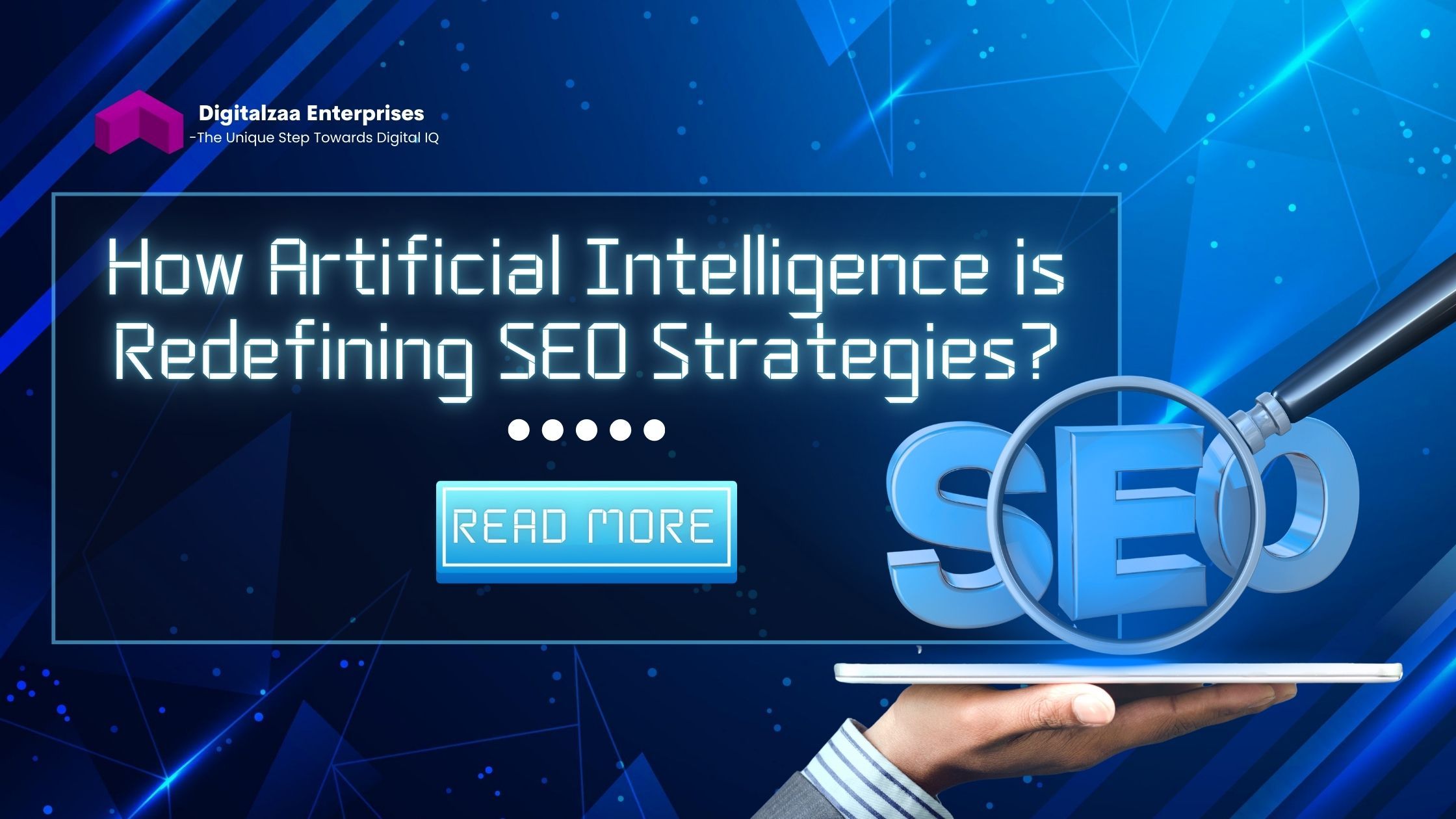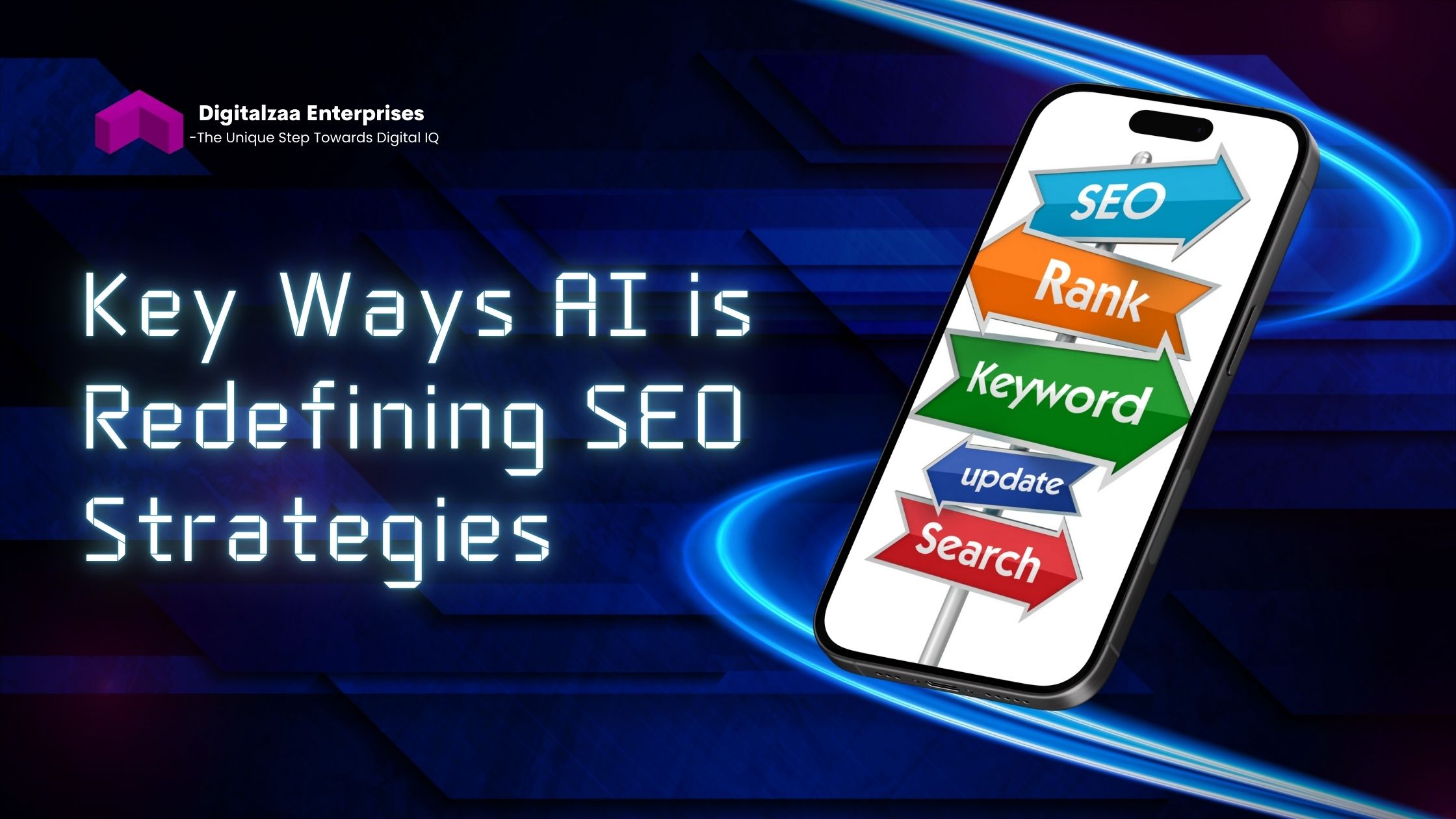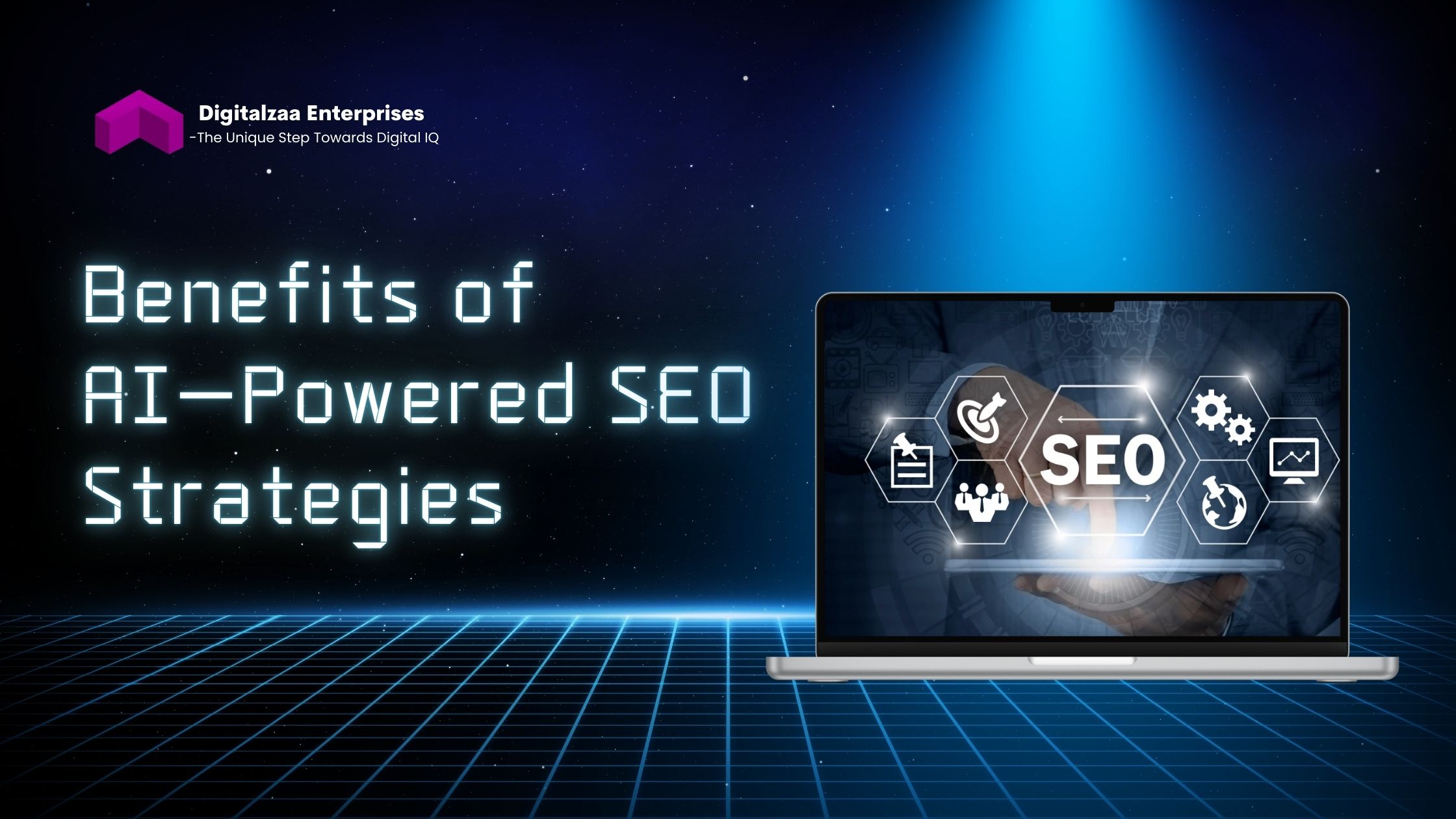How Artificial Intelligence is Redefining SEO Strategies?

Search Engine Optimization (SEO) has always been the backbone of digital marketing. From keyword stuffing in the early 2000s to today’s sophisticated content marketing, SEO has constantly evolved. Now, Artificial Intelligence (AI) is redefining the entire landscape of SEO strategies. With search engines like Google leveraging AI-driven algorithms such as RankBrain, BERT, and MUM, the way businesses optimize their content for visibility has changed dramatically.
In this blog, we will explore how Artificial Intelligence in SEO is transforming digital marketing, why it matters for businesses, and how marketers can adapt to AI-powered tools and techniques for long-term success.
The Evolution of SEO and AI’s Role
Traditional SEO relied heavily on manual keyword research, backlinks, and technical optimization. While these elements remain relevant, search engines are now smarter than ever, focusing on user intent, content quality, and contextual meaning.
AI technologies such as machine learning, natural language processing (NLP), and predictive analytics allow search engines to interpret queries beyond keywords. Instead of simply matching words, they understand the searcher’s intent—what the user truly wants.
This shift means SEO strategies must go beyond ranking factors and focus on creating valuable, relevant, and user-centric content.
Why Artificial Intelligence in SEO is a Game-Changer
- Improved Search Engine Algorithms: Google’s AI-powered algorithms such as RankBrain and BERT analyze search queries more intelligently. RankBrain, for example, adjusts rankings based on user engagement, while BERT processes natural language to understand context. Businesses now need to create content that answers specific user questions instead of relying solely on keyword density.
- Smarter Keyword Research and Optimization: AI-powered SEO tools like SEMrush, Ahrefs, and Clearscope help marketers discover semantic keywords, related terms, and user intent. Instead of targeting only high-volume keywords, businesses can leverage long-tail and conversational queries, which are crucial for voice search optimization.
- Content Creation and Optimization: AI tools such as Jasper AI, Copy.ai, and SurferSEO assist in content ideation, writing, and optimization. These platforms analyze top-ranking pages, suggest relevant keywords, and recommend improvements in structure, readability, and tone. This ensures content aligns with both search engine requirements and audience expectations.
- Enhanced User Experience (UX): AI plays a critical role in improving website performance, personalization, and engagement. For example, chatbots enhance customer interaction, while recommendation engines display personalized content. Since Google prioritizes websites with high engagement metrics, AI-driven UX optimization directly boosts SEO performance.
- Predictive SEO: Predictive analytics powered by AI forecasts future search trends. Businesses can prepare content strategies in advance, staying ahead of competitors. For instance, e-commerce companies can analyze seasonal trends and optimize product pages accordingly.
Key Ways AI is Redefining SEO Strategies

Understanding User Intent More Accurately
In the past, SEO was about targeting specific keywords. Today, it’s about answering why a user is searching. AI enables search engines to interpret contextual meaning, ensuring that the most relevant results appear.
For example:
- If someone searches for “best smartphone,” AI distinguishes whether the user is looking for product reviews, comparison charts, or buying options.
- If the query is “how to fix iPhone battery,” AI directs them toward DIY guides or service centers.
Marketers must optimize content for intent—informational, navigational, or transactional—to align with AI-driven ranking factors.
AI-Powered Voice Search Optimization
With the rise of smart speakers and voice assistants like Alexa, Siri, and Google Assistant, voice search has become a key trend. Voice searches are conversational and longer than text queries. AI algorithms process these queries using NLP.
Businesses must adapt their SEO strategies by:
- Using natural language keywords
- Creating FAQ-style content
- Optimizing for local SEO, since many voice searches are location-specific
Personalization in SEO
AI enables hyper-personalization in search results. Google customizes results based on location, browsing history, and user behavior. For example, two people searching for “best restaurants near me” may see completely different results.
Marketers can leverage personalization by:
- Using AI-driven analytics to segment audiences
- Delivering personalized landing pages and product recommendations
- Enhancing customer journeys with tailored content
Content Quality Analysis
Search engines now use AI to assess content quality. Factors like relevance, accuracy, readability, and engagement determine rankings. AI tools evaluate these metrics and provide actionable recommendations.
For instance:
- Grammarly and Hemingway improve readability
- Clearscope and SurferSEO optimize content structure and keyword placement
- MarketMuse analyzes content gaps compared to competitors
High-quality, AI-optimized content has a higher chance of ranking.
Visual and Video SEO with AI
AI has expanded SEO beyond text. With Google Lens and YouTube AI algorithms, visual and video content optimization has become critical. Businesses should:
- Add descriptive alt text for images
- Use AI-generated transcripts and captions for videos
- Optimize video titles, tags, and descriptions with relevant keywords
Visual search, powered by AI, is gaining traction in e-commerce, where customers upload an image to find similar products.
Real-Time SEO Insights
AI tools provide real-time data on keyword performance, competitor strategies, and search trends. Instead of manual monitoring, marketers receive instant insights and suggestions.
For example:
- AI detects sudden spikes in search queries
- Alerts marketers to optimize trending content
- Tracks competitor keyword rankings dynamically
This speed and accuracy redefine SEO decision-making.
Benefits of AI-Powered SEO Strategies

- Increased Efficiency – Automates repetitive SEO tasks such as keyword tracking, link analysis, and reporting.
- Higher Accuracy – Eliminates guesswork by analyzing real-time search patterns and intent.
- Better User Engagement – Personalized experiences and improved UX increase session time and reduce bounce rates.
- Competitive Edge – Predictive SEO helps businesses stay ahead of competitors by identifying future trends.
- Scalability – AI allows companies to optimize SEO strategies across multiple markets and languages efficiently.
Applications of Artificial Intelligence in SEO
- E-commerce – Optimizing product pages, enhancing recommendations, and using AI chatbots for customer queries.
- Healthcare – Delivering precise medical information tailored to patient searches.
- Finance – AI-driven SEO for fraud prevention, personalized banking services, and customer education.
- Education – Enhancing visibility of online courses through AI-powered keyword research and semantic search.
- Local Businesses – Leveraging AI for local SEO, customer reviews analysis, and geo-targeted marketing.
Best Practices for AI-Driven SEO Success
- Focus on Semantic Keywords – Move beyond exact matches to conversational and intent-based phrases.
- Invest in AI SEO Tools – Use platforms like SurferSEO, Jasper AI, SEMrush, and Clearscope.
- Optimize for Voice and Visual Search – Prepare content for the future of search queries.
- Prioritize User Experience – Ensure fast-loading, mobile-friendly, and engaging websites.
- Leverage Data Analytics – Use AI-powered insights to refine SEO strategies continuously.
- Create Evergreen Content – Combine predictive SEO with timeless topics for long-lasting rankings.
Future of SEO with Artificial Intelligence
The future of SEO is inseparable from AI. As search engines evolve, ranking signals will rely more on user satisfaction, intent fulfillment, and multimedia optimization rather than just technical parameters.
We can expect:
- Growth of AI-driven hyper-personalized search results
- Stronger integration of voice and visual search
- AI-powered content generation at scale
- More advanced predictive SEO models
Businesses that adopt AI early in their SEO strategies will secure a long-term advantage in the digital landscape.
Conclusion
Artificial Intelligence is not just reshaping SEO—it is setting a new standard for digital marketing. By improving keyword research, content optimization, user experience, and predictive insights, AI empowers businesses to build smarter, more effective SEO strategies.
To thrive in this evolving landscape, marketers must embrace AI-driven tools, optimize for intent, and focus on delivering real value to their audience. The companies that adapt today will be the leaders in tomorrow’s AI-powered search environment.


